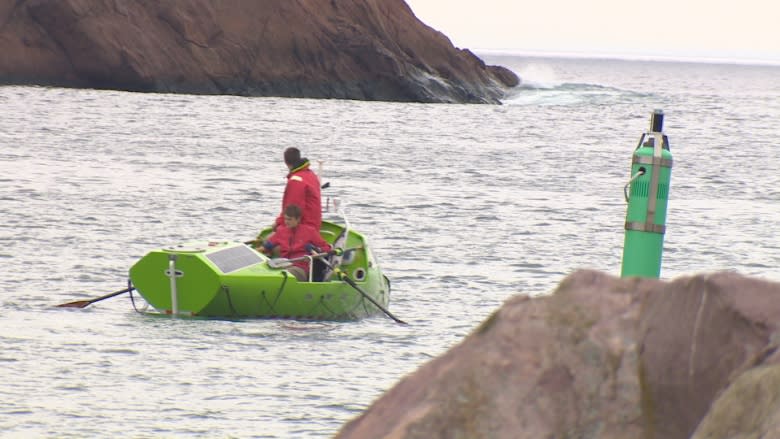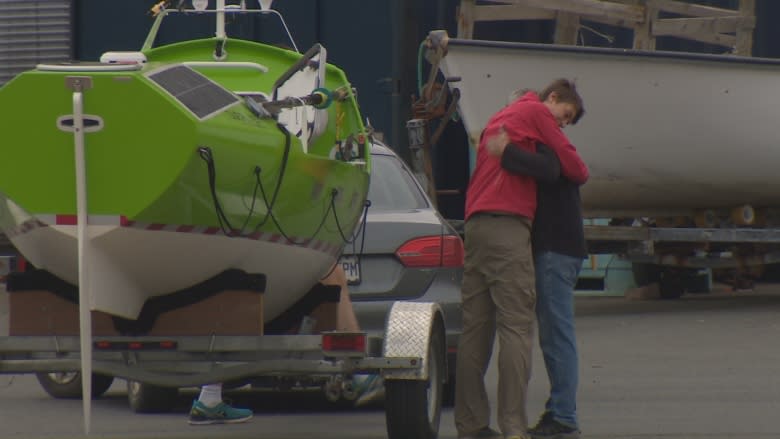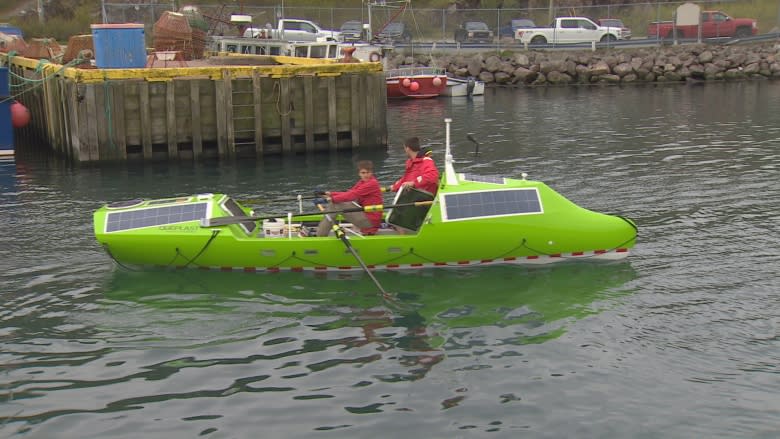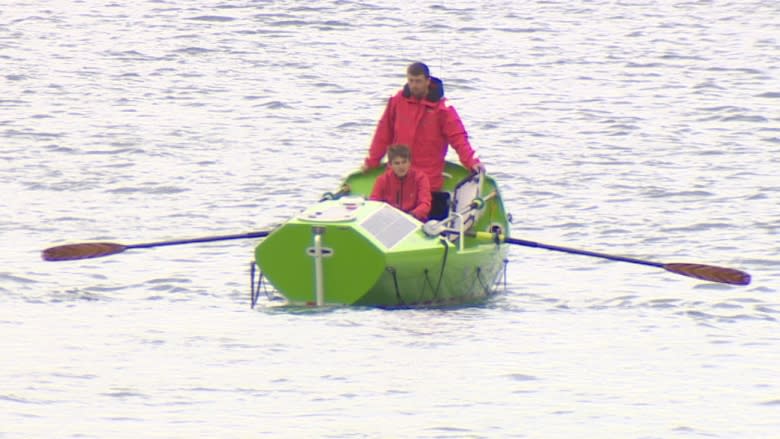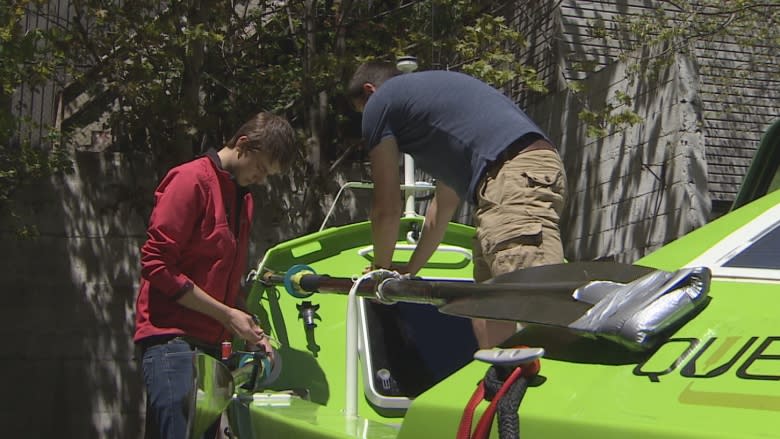'I think we're crazy': Rowers leave St. John's on non-stop Atlantic voyage
One last hug from dad and a final cup of coffee; No fanfare Tuesday morning as two young adventurers boarded the small boat they hope will bring them safely from St. John's to France by mid-August.
Joseph Gagnon, 20, and Brian Conville, 25, are planning to row non-stop across the Atlantic Ocean to Noirmoutier, a small island on the Vendée coast of France, a journey they will try to make in 60 days.
"I think we're crazy yes. Maybe," said Gagnon.
"My mother definitely says we're crazy," Conville chimed in.
Not their first ocean journey
Gagnon is a first year science student from Quebec. He came up with the idea when he first sailed across the North Atlantic with his parents. Two years ago, he began preparing for this trip.
Conville is a house builder from Dublin. Last year, he crossed the Pacific Ocean from California to Hawaii, rowing for 48 days.
On this journey across the Atlantic, the men are expecting to row for 24-hours a day, alternating breaks every two hours so one of them can sleep.
They will consume 4000 calories per day, hitting that target with air-dried foods and protein bars packed in Ziploc bags.
"Everything on board is warm. The novelty of eating these wears off pretty quick," Conville said.
Without stopovers, they will be sleeping in the small compartment of their 22-foot neon green boat. To clean and bathe themselves, they're using baby wipes, stacked neatly in rows against their sleeping bags.
Mental toughness challenge
The journey is about testing their mettle as well as their physical endurance, the men say, and overcoming "a massive challenge."
When asked about their fears, the rowers say it's about getting past the preparation stages.
"Once you get on the boat, the fears go away," said Conville. "You're not even out the harbour and the fear goes away, cause you're just more comfortable sitting on the boat."
For Gagnon, it's about overcoming the self-doubts.
"It's a big endurance challenge, so it's really to have a good mentality during all the crossings — to stay positive on the boat," he said. "For the other problems, we have a land crew who will help us."
The rowers are supported by a team on shore, including a doctor who is on standby and ready to provide assistance at any time through radio communication.
"If we get sick ... one of us just stops rowing really," said Conville. "We'd go to bed for a couple of days and the other just continues on."
Gagnon and Conville expect to arrive on the shores of western France in approximately two months.

